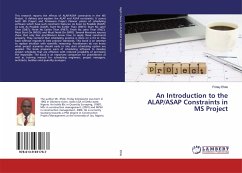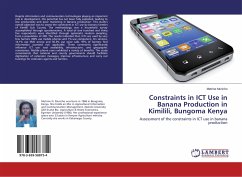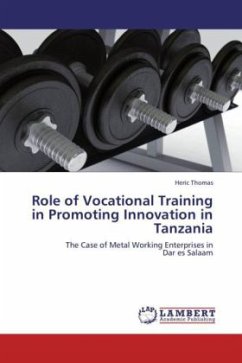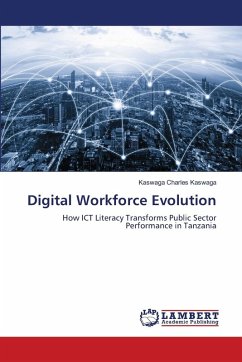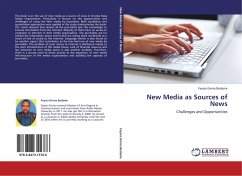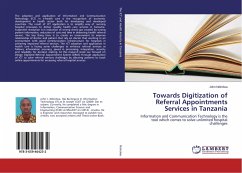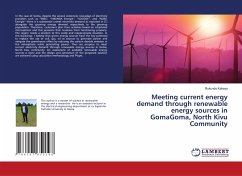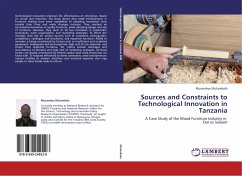
Sources and Constraints to Technological Innovation in Tanzania
A Case Study of the Wood Furniture Industry in Dar es Salaam
Versandkostenfrei!
Versandfertig in 6-10 Tagen
32,99 €
inkl. MwSt.

PAYBACK Punkte
16 °P sammeln!
Technological innovation improves the effectiveness of enterprises. Based on survey and interview, this book shows that small entrepreneurs in furniture making have some capabilities of adopting innovation from outside their firms and make changes in-house. They reached an incremental innovation in quality furniture, while adopting design and size of furniture. However, they seem to be less innovative in production techniques, work organisation, and marketing strategies. To effect the changes, they rely on various sources such as customers, photographs, competitors, catalogue and brochures, an...
Technological innovation improves the effectiveness of enterprises. Based on survey and interview, this book shows that small entrepreneurs in furniture making have some capabilities of adopting innovation from outside their firms and make changes in-house. They reached an incremental innovation in quality furniture, while adopting design and size of furniture. However, they seem to be less innovative in production techniques, work organisation, and marketing strategies. To effect the changes, they rely on various sources such as customers, photographs, competitors, catalogue and brochures, and imported furniture. Ability to innovate is being constrained by factors such as insufficient and outdated equipment, inadequate technical expertise, high cost of raw materials, and threat from imported furniture. Yet, others include shortages and inconsistency of demand and high cost of marketing strategies. All these factors are largely contributed by limited capital most small enterprises are faced with. To respond effectively to these constraints, small entrepreneurs require facilities to modern machines and technical expertise and urge people to value locally made furniture.



